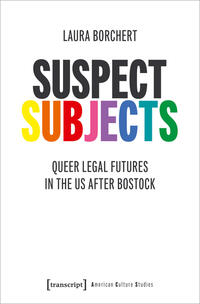
Despite formal equality gains such as LGBTQ workplace protections (Bostock v. Clayton County 2020), heteronormative cultural orders still permeate queer rights discourse. Laura Borchert engages with the cultural-legal construction of sexual minorities in the US and deconstructs naturalized assumptions about ›the Queer‹ in US law and culture and central constitutional-cultural imaginaries by conducting interdisciplinary wide readings of legal texts. She makes a strong case for utilizing suspect classification to secure queer rights and offers the first distinctively cultural studies perspective on equal protection and sexual orientation by using a queer hermeneutics of law.